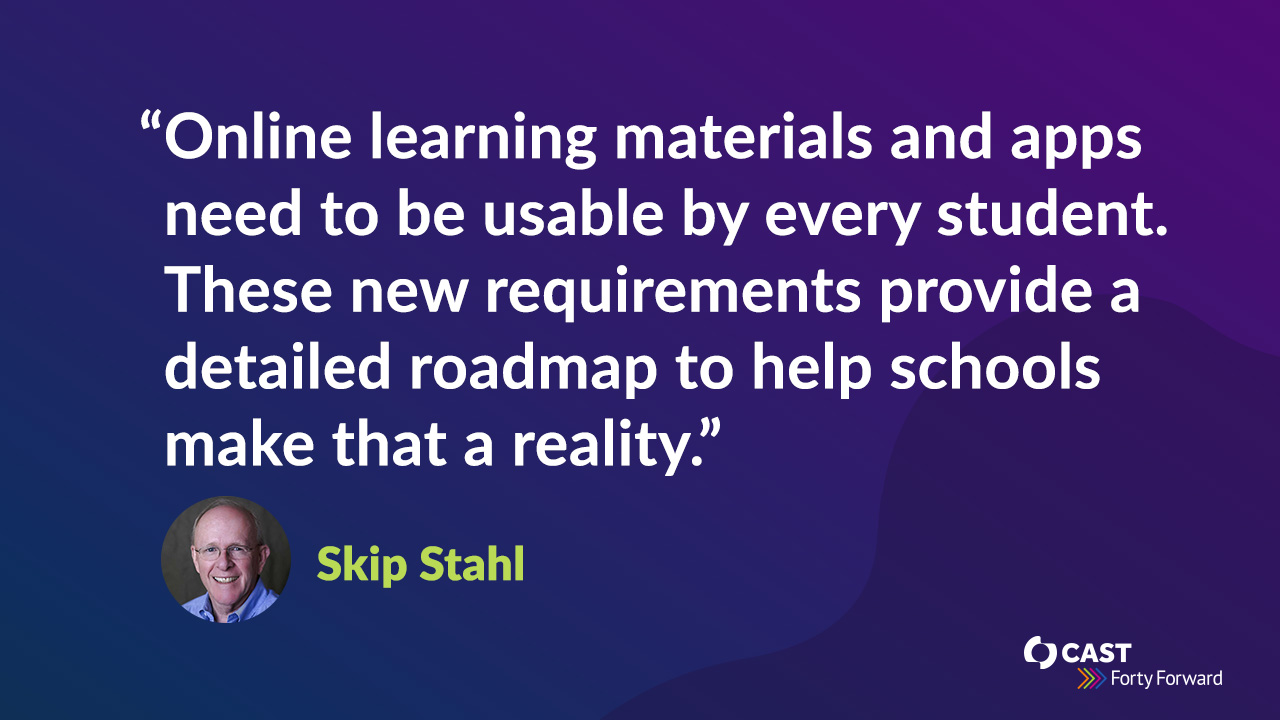About the AEM Center
The National Center on Accessible Educational Materials for Learning at CAST provided technical assistance, coaching, and resources to increase the availability and use of accessible educational materials and technologies for learners with disabilities across the lifespan.
Why accessible materials & technologies?
Accessible versions of educational materials may mean the difference between learning barriers and learning opportunities.
NIMAS & NIMAC
NIMAS is a technical standard used by publishers to prepare “electronic files” that are used to convert instructional materials into accessible formats. NIMAC is a national center that stores NIMAS source files from publishers.

Learning on the Go: ADA Title II Updates and Requirements
In April 2024, the United States Department of Justice issued a final rule requiring state and local governmental entities — including early childhood, elementary, secondary, and postsecondary institutions — to ensure web- or mobile app-based digital learning resources are appropriate for and usable by students with disabilities.
Explore more about Title II ADA Updates and Requirements through The Accessible Learning Experience Podcast S. 03 Ep. 11
Featured AEM Center Resources
Learn more about AEM Center resources

AEM Takeaways
Dive into the AEM Takeaways series for quick, exciting lessons on accessible materials and technology! Watch short videos where AEM experts break down terms and practices, then get real-world insights from field professionals. Plus, explore extra resources to supercharge your training in schools, universities, or any setting you choose!
Getting Unstuck: How a Few Determined Educators Strategically and Serendipitously Advanced Accessible Educational Materials
This paper presents the findings from the second case in a multiple-case study examining the implementation of federal and state policies by State Education Agencies (SEAs) and Local Education Agencies (LEAs) to provide Accessible Educational Materials (AEM) to disabled students in two Southern states
AEM Center at CAST
2024
Open Education Resources: Ensuring Inclusive Learning in Uncertain Times
Situated at the intersection of where the OER field meets accessibility issues, this guide details a variety of resources useful for evaluating and selecting appropriate and accessible OERs.
A. Hashey, et al.
2021
AEM Navigator
Use the AEM Navigator to make informed, accurate decisions about the acquisition of accessible formats for students who need them.
AEM Center at CAST
2021

The Accessible Learning Experience
Turn learning barriers into learning opportunities by exploring the world of accessibility and Universal Design for Learning in this monthly podcast.
